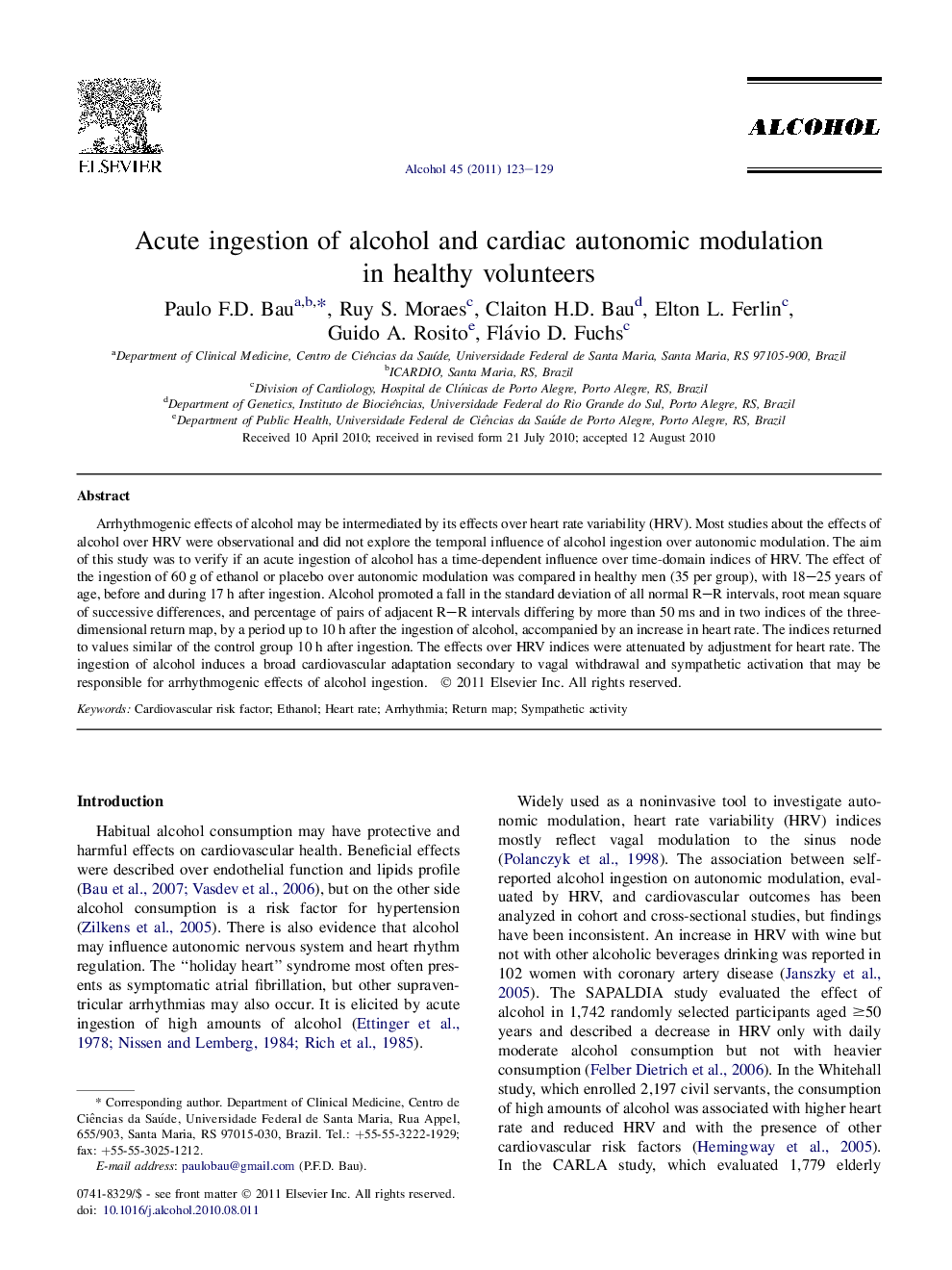| Article ID | Journal | Published Year | Pages | File Type |
|---|---|---|---|---|
| 1067726 | Alcohol | 2011 | 7 Pages |
Arrhythmogenic effects of alcohol may be intermediated by its effects over heart rate variability (HRV). Most studies about the effects of alcohol over HRV were observational and did not explore the temporal influence of alcohol ingestion over autonomic modulation. The aim of this study was to verify if an acute ingestion of alcohol has a time-dependent influence over time-domain indices of HRV. The effect of the ingestion of 60 g of ethanol or placebo over autonomic modulation was compared in healthy men (35 per group), with 18–25 years of age, before and during 17 h after ingestion. Alcohol promoted a fall in the standard deviation of all normal R–R intervals, root mean square of successive differences, and percentage of pairs of adjacent R–R intervals differing by more than 50 ms and in two indices of the three-dimensional return map, by a period up to 10 h after the ingestion of alcohol, accompanied by an increase in heart rate. The indices returned to values similar of the control group 10 h after ingestion. The effects over HRV indices were attenuated by adjustment for heart rate. The ingestion of alcohol induces a broad cardiovascular adaptation secondary to vagal withdrawal and sympathetic activation that may be responsible for arrhythmogenic effects of alcohol ingestion.
